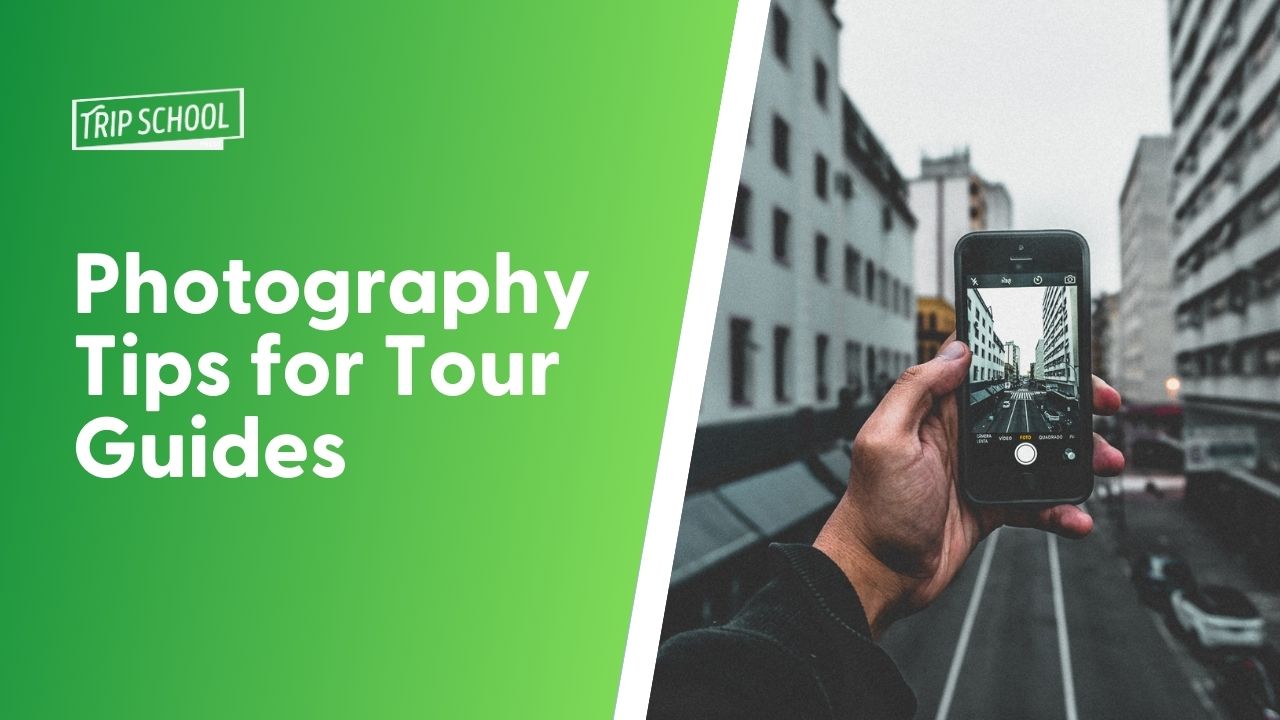Photography Tips for Tour Guides
Travelers have always reflected on their trips through photos, but now photography (almost always with smartphones) has become probably the single most pervasive element of the on-tour experience. Facebook and Instagram are endless scrolls of images, many from travel adventures. And yet: so many of our tour guests (and we as guides!) take lousy photos. It’s so easy to simply hold the camera up in front of your eyes, and just click.
Great photos can help make a great trip, for you and your guests.
Why do good photos matter?
- Teaching good photography skills changes the visual memory guests have of their trip. Every night they sit in their hotel rooms or spend hours on long coach rides scrolling through their photos. The better their photos, the better their perceived experience of the journey!
- Guests are appreciative, especially when they look back on their trip. On tour, I’ll show students and adults alike good photo examples using printed, laminated examples to help them see what I’m talking about. And then I’ll hold a photo contest to challenge them to get out there and apply their skills in a fun way (more on that in the next post!).
- The best photos guests take of the trip can be pooled together, shared, printed and used in all sorts of creative ways for everyone’s enjoyment. There’ll be a whole post coming soon on that topic, too.
- Good photos help market you! Instagram and Facebook photo posts of your trips draw people into the world you create as a tour leader. Why not make that world look as good as possible?
So let’s take a look at some principles for taking better photos. Once you’ve mastered these principles, you can share the tips with guests to make everyone’s pics more interesting. You don’t need to be a photographer to teach good photo-taking skills on tour!
All the images here are from Unsplash.com, a great resource for free, royalty-free images.
Avoid the “point and shoot” reflex. And: if you’re using a smartphone camera, don’t use the zoom!
These are the two most common problems, and a perfect recipe for a boring, grainy photo. The zoom on a phone is digital; it’s not actually getting closer to the object, it’s just making the image’s pixels larger. Zoom in too much, and the image is grainy. Either get closer, or figure out a way to place the object in a unique position in the frame to make it more interesting (e.g. along the left or right side, instead of the center).

Zooming in just creates a pixelated photo.
An interesting photo offers a unique or different perspective on the scene.
Look at the way each of these photos of the Statue captures something unique, by using light, weather, angle and framing to make us change our normal idea of what the Statue looks like.
Give your photo both foreground and background.
Look at the scene, and ask yourself: can I put something close the camera that frames the background action in an interesting way? The more visual “interest” you can create in a photo, the better. Likewise: don’t put the main subject directly in the center of the shot. As the legendary Fashion editor Diana Vreeland says, the eye must travel. Make the viewer look around the photo to understand what’s going on.
Think of a unique way to offer a new perspective.
In these examples you’ll see that the photographer has pointed the camera in a way to show a normal scene from a new angle or perspective.
A person always spices up a photo, if you use them creatively.
Avoid the usual “Look, I’m smiling at the camera!” people shots. Avoid the selfie! At this point everyone’s Facebook feed is 90% smiling friends on vacation. You can stand out by using people more creatively. Instead of just sharing yourself in a scene, think about ways to make the photo invite the viewer to feel part of the scene, like the examples below.
Create drama with shadow.
Don’t just flood every scene you take with light and flash! Look at what the sun’s doing, and notice shadows that might make an interesting contrast. Especially when taking black and white photos.
Patterns and textures can be interesting in themselves.
Notice angles, texture, and the way lines intersect in an image, and emphasize them.
Now go get creative!
The best way to get a feel for what great travelers are doing with photography is to explore Instagram. This page has a good starter list of people to follow. On Instagram you can also search for hashtags like #travelphotography to get inspired by what millions around the world are doing. Otherwise, the next time you pick up a travel magazine like Afar, National Geographic Traveler, pay attention to what the photographers are doing, and how they’re using the tricks I mentioned!


























